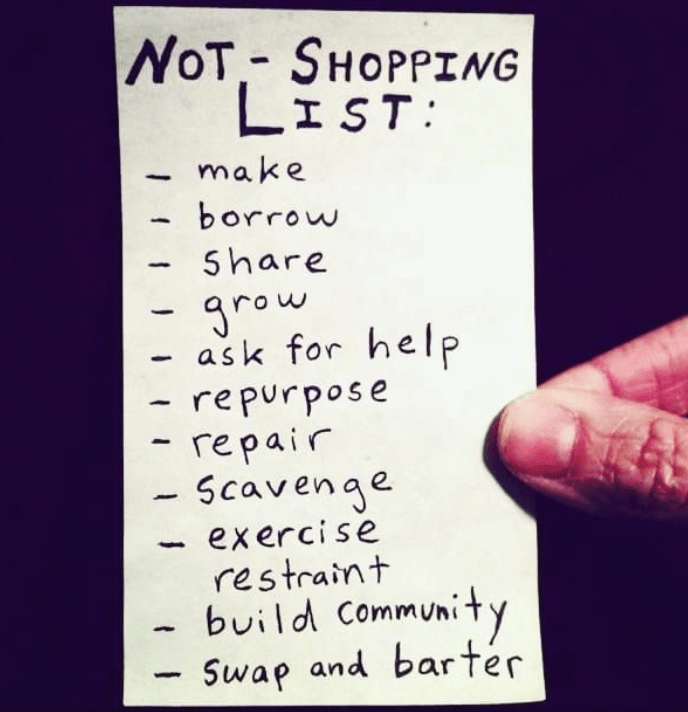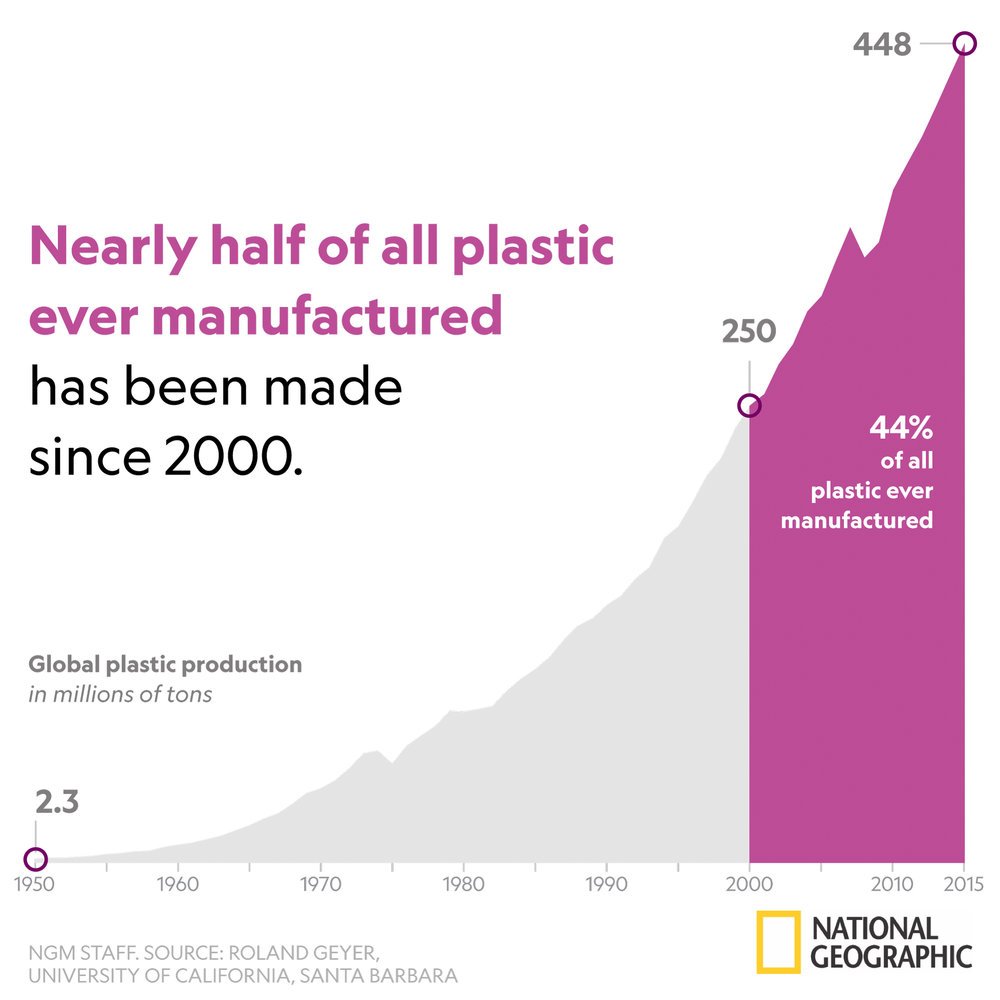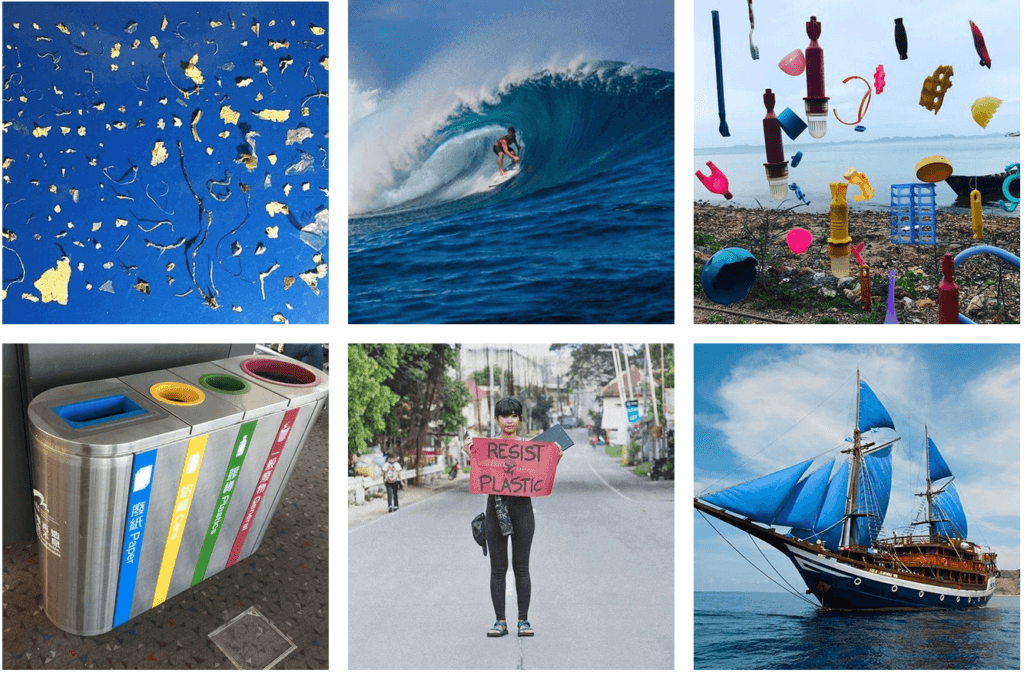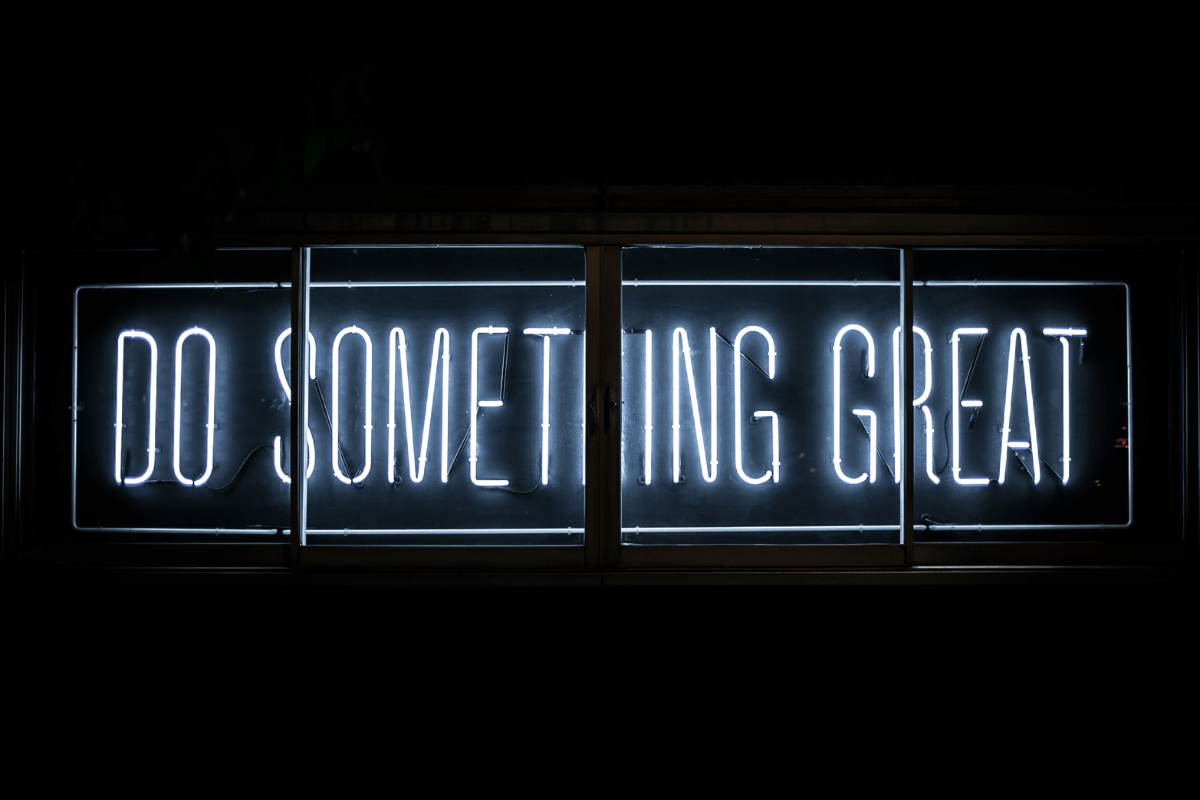You’ve probably noticed the surge in articles about the plastic crisis simply because Collins Dictionary picked “single-use” as word of the year. Single-use sounds civilized and progressive. It has the air of fast food and medical sterile supplies. It has an aura of innocence, but the truth is that this is a terrible word when given the proper context. Have we been blinded by the opportunity, and failed to see the pile of trash?
Its increased popularity might be a turning point or just a dangerous peak.
Instead of debating, we think it’s better to share some tips on how to make it obsolete in its current, non-recyclable, highly damaging state, littering our fast and rushed lifestyle. Hopefully, next year we’ll celebrate healthier words like reuse, rethink, or refuse.

The 3 Rs & A Tote
The 3Rs (refuse, reuse, rethink) are essential in combating single-use. You can see them as your best friends. Even if they would replace all plastic single-use with biodegradable single-use, the 3Rs are still your best friends long term.
The tote is a tool to help you practice refuse and reuse. And it’s nothing new, as it has been around for longer than the plastic bag. How come we forgot about such a useful, sturdy, good-looking object? Maybe we just found it easier to play by the unwritten rules of the supermarket and the fast-food industry. But look at this graph below – hopefully it will convince you to take that tote with you next time you go out.

Did you know they make reusable carrier bags so small that they fit in your pocket? And they look like decent accessories too. They come in all sizes and shapes, from cultured totes in bookstores, to fruity ones in local stores. You can personalize them, make them yourself from old t-shirts or just reuse the ones you crammed at the back of the kitchen drawer 10 years ago. If you buy a new one, make sure you encourage a local business and/or ethical one that looks after its workers and cares about an Earth friendly supply chain
No, You Can’t Recycle It
I know I didn’t say anything about recycling yet. That’s because some single-use cutlery and paper cups may be recyclable, but again, it really matters where you live. Recycling differs from country to country, city to city, even neighborhood to neighborhood, so no, recycle should have a different definition for every place with a radius of a couple of miles.
If you want to make single-use history, forget recycling. At least until we figure out a way to make it work for everyone. Of course, it is easier when you already have single-use biodegradable and even edible options. But it’s hard to know when this will become a global trend
Be The Change You Want to See: Use A Spork
Buy a lovely set of reusable cutlery. Or just open the kitchen drawer and try those steel vintage ones your granny lovingly saved especially for you. There are lighter versions, if you don’t have enough space or energy to carry steel around. Like these bamboo sporks.
As for cups, forget words like plastic cup and Styrofoam. Get your own light bamboo cup. You also have ceramic, glass and other cleaner options that do not affect the taste of your takeaway latte either. Same with containers. You have healthy glass and reliable steel.
The most obvious advice to the single-use crisis from the customer perspective: Find some permanent place in your bag or backpack for reusables. Strangely enough, this seems to be a big problem for most people. They’d find place for an entire bathroom cabinet in there, but not the humble bamboo spork.
Refuse Single-Use Plastic. Every. Single. Time.
Politely. Feel ready to give explanations if necessary. “I just love turtles” could be a good answer. Refuse plastic single-use cutlery even when they tell you it’s free, as if free plastic is a good reason to rejoice. Sure, the best things in life are free, but I bet whoever came up with this wasn’t referring to plastic cutlery, bags, and Styrofoam cups.
Don’t Be Afraid To Ask About Their Use of Single Use
It’s as normal as asking about the ingredients in their tacos. Talk to a friend or family member about this. You’d be amazed how many people have no idea single-use is a scourge on the environment. If the mainstream media doesn’t cover it, it doesn’t exist for most people.
Follow #zerowasteliving or #plasticfree on Social Media
Only if you’re on social media. Best not to get entangled in social media just for a #. In other words, try to make the best of your time online. Get up to date on the latest developments in the zero waste hub. The zero waste community is growing faster than a Black Friday queue and they have a talent for photography and videography too, as it happens. You’ll find yourself staring at old-stockings-new-shopping-bags and months of waste that fit in a jar. And what a clean mason jar that is.
Have a look at Lauren Singer and her Trash is for Tossers blog. She’s one of the first to experiment with the zero waste lifestyle and documents it too. In the meantime she even opened a package free shop. Mind you, if you follow one particular # you might end up discovering other useful ones, closer to your interests. You’ll get an impressive amount of visual suggestions from people around the world, from DIY to Earth friendly brands that lend a helping hand if you run out of homemade ideas.
Have You Seen The Wax Wraps Yet? You Can DIY Too.
Some replacements are more charming than you could ever imagine. Many can be made at home too. From old clothes turned into produce bags to biodegradable beeswax wraps (there are also vegan options) and old newspaper garbage bags, it’s all a matter of creativity and willingness to make the change. Yes, you can make the wax wrap yourself if you like a challenge.
We do like to talk about mending and giving new life to old stuff. When it comes to DIY, there’s no shortage of suggestions – as if people care for each other and want to share their discoveries, or something 🙂
Watch Documentaries Like Blue Planet or A Plastic Ocean
… ideally with friends who have been living in a cave and don’t know much about the single-use crisis. There’s so much power in the moving image, and it’s a much easier way to have an impact than trying to quote studies and numbers. We’ll surely talk more about this soon.
Signing Petitions Is Important
Don’t let anyone convince you differently. Check out this one about banning microplastics. Microplastics have now been banned in several countries and cities simply because civil society tried all avenues to trigger change, including petitions, legal actions, voting day. If enough people sign a petition the politicians are forced to look into it and act on it. It doesn’t always end up in victory, but the effort you put into it is insignificant considering how much can be achieved.
Read Books Like No More Plastic
Or Waste Not. Make a Big Difference by Throwing Away Less, if you need more convincing or if you simply need some support before you have the single-use conversation with family, friends, or bosses. There are plenty more to choose from. You can buy them on The Book People or in one of the charity shops in your area. When you’re done with them, donate or share with someone else. Books have more lives than a cat. True story.
Join or Support Organizations Like 5 Gyres

Maybe this is the year we finally become aware not that this is a popular word, but that single-use is tightly connected to the plastic pollution that is a global disease. Organizations that work on finding solutions to the crisis are a good way to take your fight against single-use to a new level.
As with most small issues, multiplied by millions they become huge problems, but so are the solutions. Good luck to us all!
~~~~~
Featured Image via 5gyres.org



Leave a Reply